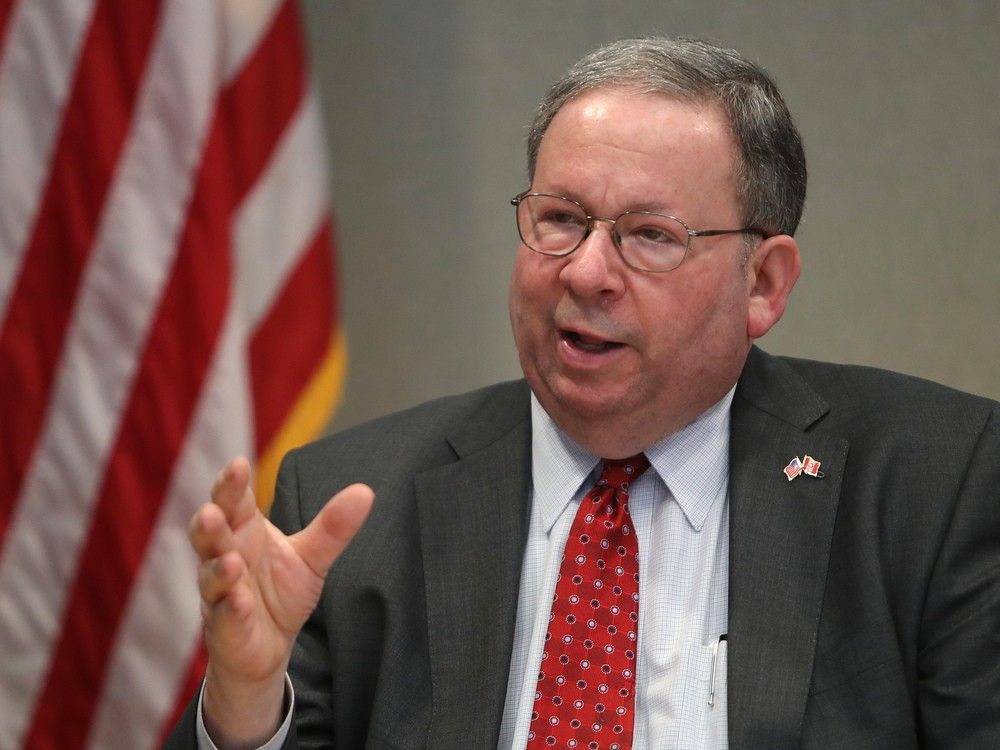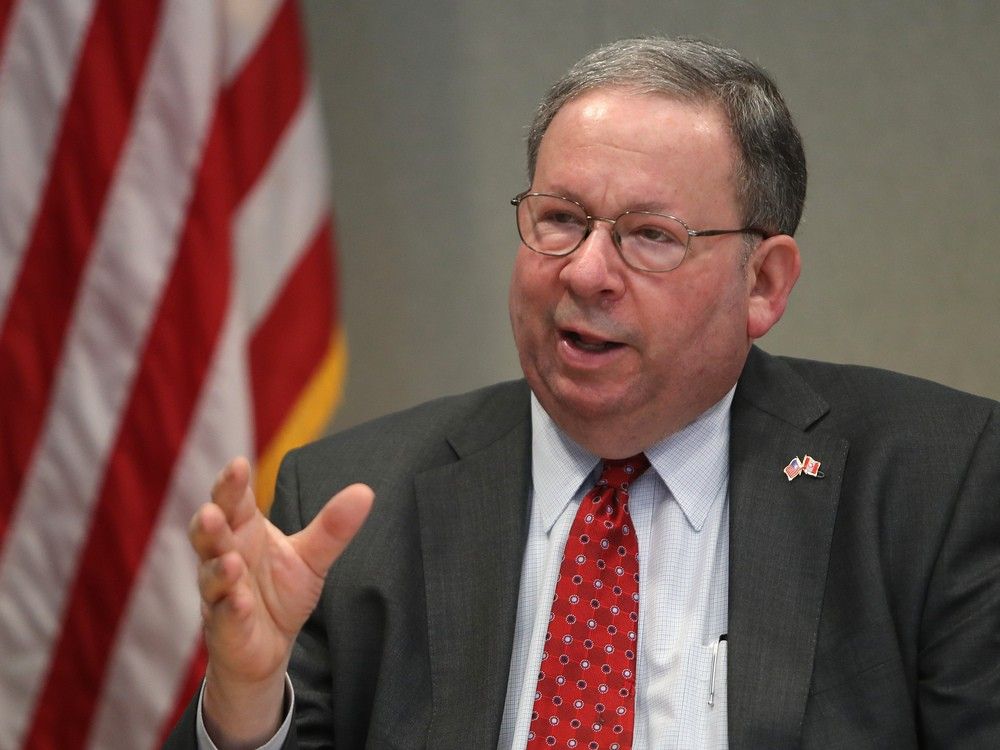
Canada’s view of its southern neighbour has understandably dimmed after President Donald Trump launched a tariff war. With Trump declaring more tariffs against Canada effective Friday, National Post spoke this week with former ambassador David Cohen, former president Joe Biden’s envoy to Ottawa from 2021 to 2025, who was tasked with resetting U.S.-Canada relations following the first tumultuous Trump term, which included its own tariff actions against Canadian goods.
Much of Cohen’s work involved navigating a landscape where bilateral co-operation could no longer be taken for granted and where he had to rebuild an alliance strained by trade disputes and fiery rhetoric. He’s since returned to private life but still gives talks boosting the U.S.-Canada relationship.
(This interview has been edited and condensed due to length.)
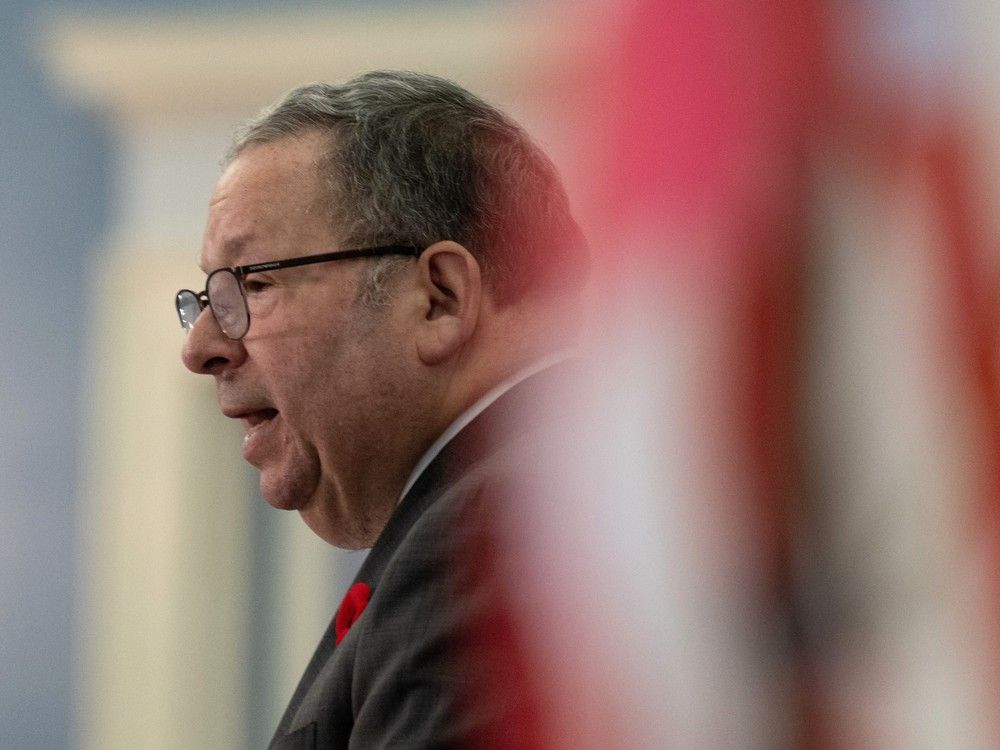
Q: What were your proudest achievements as ambassador?
A: “I think the most important achievement was all of Mission Canada,” said Cohen. “I set as a priority to rebuild, strengthen, and nurture the U.S.-Canada relationship, and I think we were largely successful in accomplishing that objective.”
Cohen also noted helping to shift Canada’s defence spending debate away from an almost exclusive focus on GDP percentages by arguing that commitments must be tied to existing security threats.
The public view often was, “Why does Canada have to spend money on defence? We’re surrounded by oceans on three sides, and by the United States on the fourth side.”
But, Cohen said, “that wasn’t and isn’t true. There are legitimate security threats, and Canada has a special responsibility and should have a special focus on continental defence.” He noted that under prime ministers Justin Trudeau and Mark Carney, the defence discussion has lately become centred on continental defence and the Arctic, which resonates more with Canadians.
In fact, in December 2024, for the first time in over a decade, a majority of Canadians supported more defence spending, according to polling by the Angus Reid Institute
. This, said Cohen, “contributed to the additional defence spending that has occurred – and made it easier for (Trudeau and Carney) to make commitments about increasing the amount of investment that Canada would make toward defence, ultimately being able to sign off on the new five per cent threshold that was agreed to this year.”
Q: How well do you think Carney’s team has been doing amid the trade war and negotiations?
A: “Prime Minister Carney and Canada are doing about as good a job as they can do in very difficult negotiations that are not always rationality-based … President Trump has not been all that crystal clear at times about exactly what it is he wants to accomplish and the underlying reasons for his positioning,” he said.
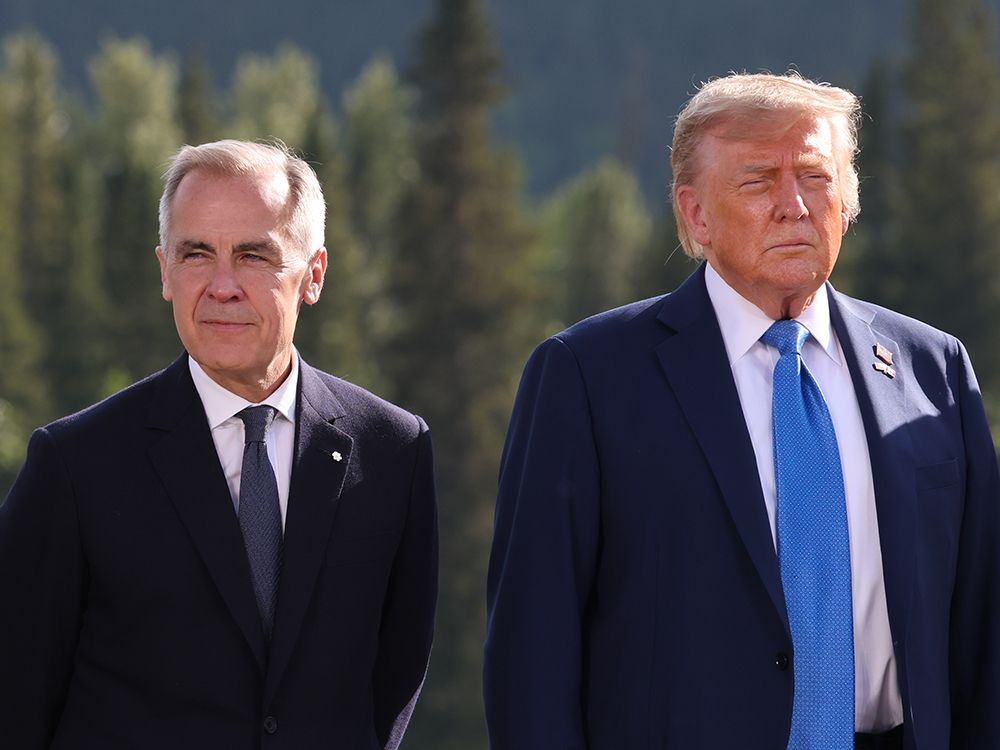
Cohen pointed to the White House’s original 25 per cent tariff announcement and how it was premised largely on border and fentanyl issues, even though he said fentanyl imports from Canada were a very small part of the U.S. problem, especially compared to Mexico. He questioned the rationale for raising tariffs on Canadian goods from 25 to 35 per cent, given the tiny and shrinking amount of fentanyl coming from Canada.
But Cohen also pointed out that “Canada sometimes seems to overvalue its leverage, without fully recognizing the huge asymmetry in our almost trillion-dollar trade relationship. Three-quarters of Canada’s exports go to the U.S., but only 17 per cent of U.S. exports go to Canada. Sometimes that gives Canada an overinflated view of (Canada’s) leverage in negotiations.”
Q: Do you think a new U.S.-Canada trade and security deal is coming?
A: Cohen noted that Republican voices, such as Sen. Kevin Cramer of North Dakota, are publicly starting to highlight the critical importance of the U.S.-Canada trade relationship and expressing confidence that an agreement will eventually come.
Cohen agreed, saying he believes a deal is coming – he’s just not sure when.
On Canada’s path to securing the best deal, Cohen stressed that delivering concrete defence results matters far more than mere promises. “Carney has said all the right things. What he now needs to do is to deliver – that is, money actually has to be budgeted and then it has to be spent.”
He also noted that the
Golden Dome initiative
, a spending priority for the U.S., could help Canada reach pledged defence targets.

“Actually putting concrete actions behind the commitments is something that Prime Minister Carney can do.”
Cohen also noted that Canada’s supply management issues, particularly with dairy, remain politically sensitive.
“There are a whole series and host of issues that are outstanding between the United States and Canada,” he added, “and I think bringing any of them to the table with potential solutions that would be attractive to President Trump is a good strategy and a good tactic.”
Q: Do you expect the current trade talks to bleed into the required review of the U.S.-Mexico-Canada trade agreement this coming year? Do you think Trump is looking to rip that up?
A: “I think it’s inevitable these negotiations will bleed into the statutorily required review of USMCA,” Cohen said. And while the deal is a legacy of Trump’s former U.S. trade representative, Robert Lighthizer, “I think there’s a part of Donald Trump that views it as a Donald Trump legacy too, since he was personally at the table and personally involved in closing the ultimate deal in 2018.”
While Cohen doesn’t think Trump is interested in ripping up the agreement, he acknowledged that there “may need to be adjustments to it or revisiting of issues that Canada resisted during the original negotiation.”
“I think it’s almost inevitable that there will be certain elements of USMCA that will end up needing to be renegotiated as part of the review process.”
But he expects it to survive because “it has been such a good deal for both sides.”
Q: Has there been long-term damage to the U.S.-Canada relationship from the last few months of trade tension, or is a reset feasible?
A: Cohen noted the trust quotient between the U.S. and Canada plummeted from about 58 per cent during the Obama era to around 10 per cent in Trump’s first term, before climbing back to the mid-50 per cent range under Biden. Today it’s at 16 per cent.
“That history says it’ll take work, it’ll take effort from the United States perspective – we’ll be dealing with a skeptical Canadian audience,” he said. “But the U.S. market is too attractive (to not repair the relationship). The Canadian market is historically too much of an integral partner within that market.”
“With a different government and a different approach, I think businesses on both sides of the border will probably be more ready to come back to the table and to engage in rebuilding the relationship. I think it’s going to take more to convince the Canadian public that the United States really does care about Canada, although I think that is achievable.”
Q: Can friction between the U.S. and Canada be a good thing? Can tariffs?
A: “I think civil friction is healthy because it respects the sovereignty of our allies and often ends up improving the United States’ decision-making,” Cohen said.
“But I don’t think just because the United States is the largest economy on earth, has 10 times the population, a much higher GDP, and just because we dominate the trade relationship, means that everything we say Canada should agree to just because we say it.”
On tariffs, Cohen said he is mostly a free-trade supporter and believes governments should get out of the way of businesses, the true drivers of economies.
“I think tariffs are really dangerous tools to use because I think they can interfere with the natural work of businesses in growing economies — that is what businesses do better than governments.”
But Cohen also noted that targeted use of tariffs can be appropriate. He cited the example of softwood lumber tariffs, used by both Trump and Biden. “It is just about indisputable that Canada, through its governmental policies by the federal government and by multiple provincial governments, unfairly favours Canadian lumber producers, creates preferential treatment for Canadian lumber producers, and discriminates against U.S. lumber producers.”
“As a result, U.S. lumber producers are disadvantaged vis-à-vis Canadian lumber producers, and the mechanism for levelling that playing field is the countervailing softwood lumber tariffs.”
Cohen also said tariffs can be helpful as leverage to negotiate things like boosted defence spending for NATO. “I think that’s a good thing,” he said.
But he also criticized Trump’s across-the-board high tariffs, like the 25 per cent tariff on potash, an essential farming input that’s scarce in the U.S., as making no sense.
Q: How is your successor, Ambassador Pete Hoekstra, doing in his job?
A: “I think he’s in a very difficult position because (he’s not a free agent but a personal representative of President Trump, but …) he’s from a border state and has a longstanding understanding of the U.S.-Canada relationship and its importance from his Michigan roots,” Cohen said, noting how the former representative for Michigan’s 2nd congressional district has gone out of his way to repeatedly talk about the importance of the Canada-U.S. relationship.
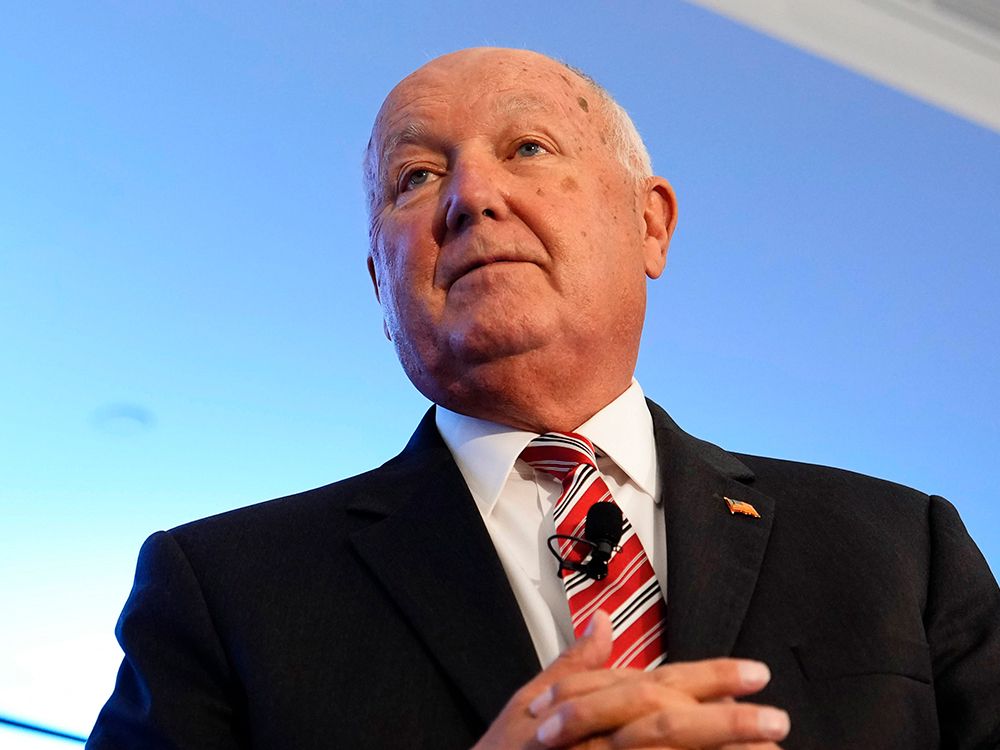
“I think he’s doing the best job he can to continue to send a message about the value that he personally and that the country puts on the U.S.-Canada relationship.”
Q: Any final advice for Canadians about their relationship with the U.S.?
A: “There’s almost an inferiority complex in Canada — lines like ‘we’re the stepchild’ or ‘not big enough to matter’ — I always hated that,” he said, noting how Canada undervalues its importance as a friend, partner, and ally.
“There are things Canada can do that the United States cannot, because internationally, (the U.S.) is the 800-pound gorilla. Canada, though, gets to be in conversations in the global south where it can express views about promoting democracy and democratic values that, if promoted by the U.S., would fall on deaf ears. Canada can open the door and help achieve America’s No. 1 foreign policy goal,
which is the promotion of democracy and democratic values around the world.
”
Canada should never also never undervalue the role it has played in its actions, Cohen said. “When the United States went into Afghanistan, Canada was the first country to join us. Americans should never forget what Canada did in the (Canadian) Caper, getting our last diplomats out of Iran safely (after the 1979 revolution), at great danger to the individual Canadian diplomats and to Canada on the international stage.
“On the one hand, be proud and recognize how incredibly important you are to this relationship … On the other hand, recognize that in tough negotiations, you may not have the best hand because of the asymmetry of the financial nature of the relationship.”
“That tension is one of the most interesting aspects of dealing with Canada.”
National Post
tmoran@postmedia.com
Our website is the place for the latest breaking news, exclusive scoops, longreads and provocative commentary. Please bookmark nationalpost.com and sign up for our newsletters here.
